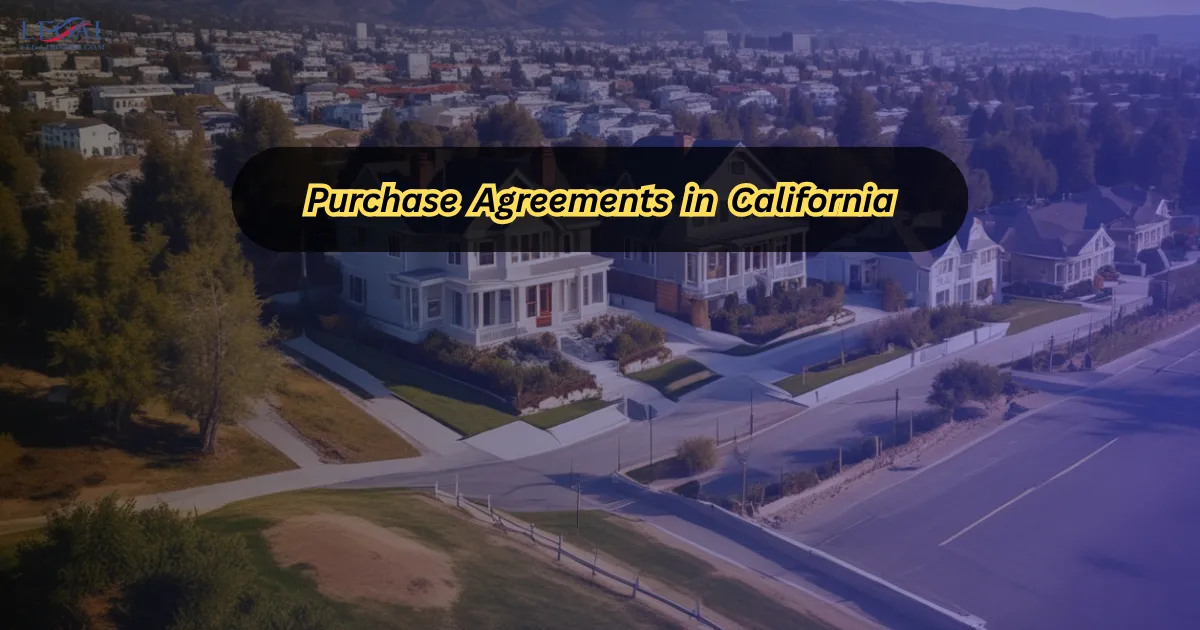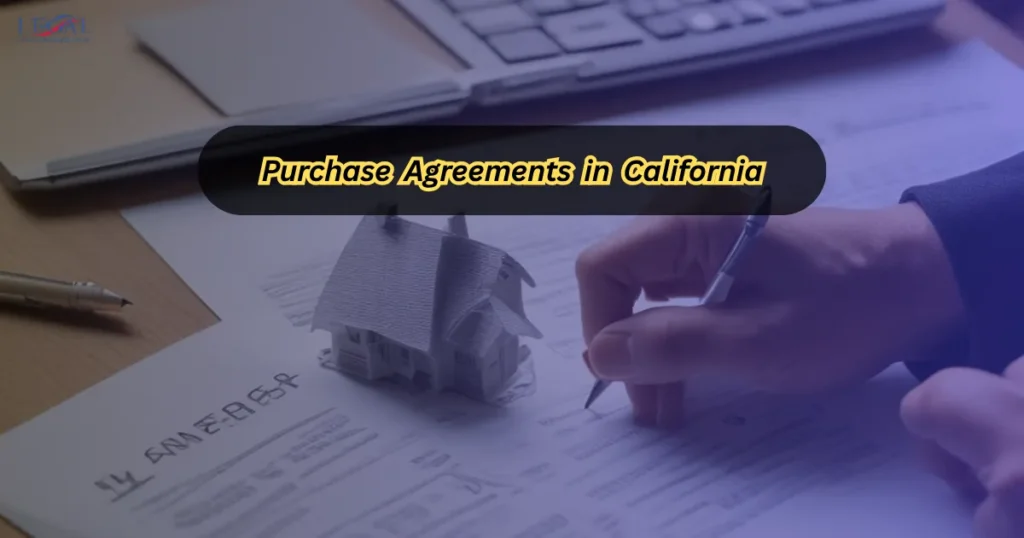Physical Address
304 North Cardinal St.
Dorchester Center, MA 02124
Physical Address
304 North Cardinal St.
Dorchester Center, MA 02124

Purchase agreements in California are the backbone of every real estate transaction—whether you’re buying your first home, selling an investment property, or closing a complex commercial deal. This legally binding contract sets the terms, timelines, and protections for both parties. When you understand it, you protect your rights, your finances, and your peace of mind.

Imagine this: You’ve found the perfect property. The seller accepts your offer, and everyone is excited. But then confusion over repair agreements, closing costs, or inspection deadlines slows the process—or worse, causes the deal to collapse. In California’s competitive market, knowing the answers to common purchase agreement questions is a game-changer.
For more step-by-step California contract guidance, visit our homepage or access our California Real Estate Resource Hub.
A purchase agreement is a written contract between a buyer and seller that details the agreed-upon terms for transferring property ownership. California’s standard real estate contracts often follow the California Association of Realtors (CAR) forms, which are crafted to meet state law requirements.
Yes. Once signed, it’s enforceable under California contract law, provided all lawful conditions are met.
Yes, but only within contingency periods or under conditions stated in the agreement. For example, inspection or financing contingencies allow cancellation without penalty.
Yes. Under California’s Uniform Electronic Transactions Act, e-signatures are legally binding for real estate agreements.
It’s often between 1–3% of the purchase price but can vary based on location and competitiveness of the market.
Yes. Both parties must agree in writing, typically through an addendum or amendment.
The non-breaching party may seek remedies including deposits, damages, or specific performance (forcing the sale).
Yes, but it must meet all California property law requirements and include mandatory state disclosures.
Typically, the buyer’s agent drafts the agreement using CAR standard forms. Attorneys can also prepare agreements.
Usually 30–45 days, but timing depends on financing, inspections, and title clearance.

Allow a buyer or seller to cancel under specific conditions—key to protecting both parties.
Earnest money terms must be clear to avoid disputes.
Define who pays which closing expenses to prevent last-minute disagreements.
Do I need a lawyer to review a purchase agreement?Not legally required, but recommended for complex transactions or non-standard terms.Can I back out after contingencies are removed?Not without penalties, unless the other party breaches the contract.What’s the role of escrow in California purchase agreements?Escrow holds funds and documents until all terms are met, ensuring a secure closing.Are all clauses negotiable?Most are negotiable, except for mandatory disclosures required by law.
Knowing the answers to these FAQs about purchase agreements in California empowers you to navigate your real estate transaction with clarity and foresight. By understanding your rights, obligations, and key clauses, you can avoid costly mistakes and close with confidence.

Whether you’re buying or selling, a well-crafted purchase agreement is your best protection. Take time to review every detail, consult professionals when needed, and make informed decisions every step of the way.
For more California real estate contract tips and templates, visit our home page.